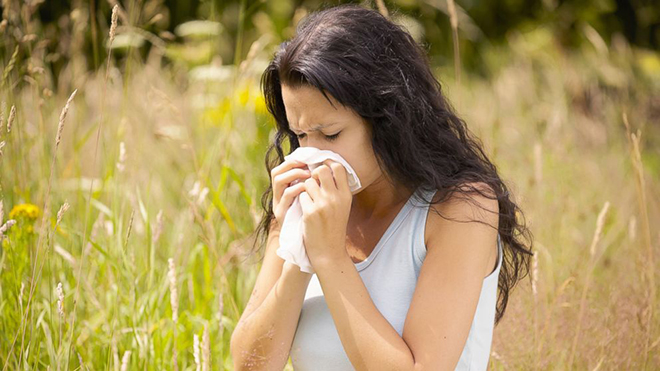How to Get Rid of Nausea with Diet and Herbal Remedies?
Introduction
Nausea is that awful feeling that one feels during his/her life time once or for many times during the whole life time, you feel like vomiting, which can be created by a virus, pregnancy, a digestive condition, unpleasant food or even some dreadful odor. Mostly you never know why nausea hits you, but doesn’t matter as you begin feeling itchy and want this feeling to go away in a hurry and will do anything to wither it away.
Eating is the last thing you feel like doing, especially when your stomach is so upset, but there are many foods that actually ease the symptoms.
The list begins with a list of many foods or conditions that might not heal you, but will make you feel more comfortable. There are many different reasons that can make you experience nausea like:
Nausea is probably one of the most unpleasant symptoms you can experience and can arise in a variety of situations. Whatever the reason is, the first thing you need to do when feeling nauseous is to think about the root cause.
- Are you pregnant?
- Did you eat something contaminated or stale?
- Are you taking some medications, which might cause nausea?
- Do you have the stomach flu or Norovirus?
- Is your nausea triggered by something you saw or smelled?
- Did you spare no effort physically?
- Did you experience pain (like menstrual cramps or migraine) that have triggered your nausea?
- Did you experience motion sickness or altitude sickness?
- Are emotions making you go nuts?
- Did you overeat or drink alcohol in excess?
- Are you undergoing Chemotherapy or Radiation?
The reason can be any, but let’s discuss the things that these symptoms go away as fast as they can.
Ginger Root:
- It is a well-known fact that having ginger does reduce your nausea symptoms. It is well known since the ancient times, even the modern science believes ginger can reduce nausea in various situations such as morning sickness, sea sickness and chemotherapy. The reason is not clear yet, how it works, but its constituent’s works positively on the digestive system and nervous system.
- It encourages the secretion of digestive juices and enzymes that help in neutralizing the stomach acid, while its phenol ingredient relaxes stomach muscles. It also calms down the irritated tissues and lowers their over-reactivity.
- The unwanted food or waste products, the toxins and bacteria that lie in the intestines, which might be responsible for causing nausea, is pushed out of the body by ginger’s phenol.
- The nausea created by morning blues and chemo-related, in such situations you can have a dose of 500 to 600 grams of ginger root 2 to 3 times a day. If your nausea is more severe take the same dose after every 3 or 4 hours every day, till the symptoms cease.
How to Use
- You can also use ginger tea, peel off its root, when the ginger is the size of your thumb, slice it down and add these slices into spring water, not the tap water, which is boiling. Cover the pot and let it simmer for about 20 minutes. Now take the pot off the flame and pour it into a mug ( if you feel you can strain it as well). Add a little honey that should be raw and not with added flavors, to sweeten the taste.
Note
- This is the most effective home remedy for nausea, especially for pregnant ladies. The ginger piece should be organic, and not the artificial one with added flavors.
Chamomile Tea:
- Chamomile plant is often used in medicinal uses and has proven its benefits since centuries. You can drink its tea either hot or cold, it soothes the digestive troubles like cramping, spasms when the stomach is upset.
- It has a great value in digestion related problems and has been proved traditionally. It is used as a medicine that cures nausea, indigestion, vomiting and motion sickness with superb results.
- You can also consume Chamomile capsules that are available or can be consumed as tea.
Brat Diet
- If you have to eat something that you find has an unbearable taste and gets you nausea tic, their do exist a very gentle bland food that can cool your stomach and clean the digestive tract.
The best diet for this is called BRAT, which contains
- Bananas
- Rice
- Applesauce
- Toast
These foods are very gentle foods, which are good for stomach and are not offensive in smelling or don’t contain a flavor, which trigger or worsen nausea symptoms.
Nuts:
- Protein deficiency can deteriorate the whole condition during nausea. Hunt for foods that are rich in proteins like nuts, even peanut butter, if you are not allergic to it, which can easily be digested. These will instantly restore your lost energy level and help in keeping the nausea at arm’s length.
- Nuts deal with the nausea that is created by immense hunger, low level of blood sugar or due to pregnancy. Better be aware not to eat nuts in abundance as nuts and proteins might deteriorate the whole condition, as these are digested slowly, then better be ready to face the music.
Banana:
- If your nausea is accompanied by dehydration, causing vomiting too often, this peel off fruit is the best remedy. Bananas have potassium, which is often lacking due to excessive vomiting and diarrhea bouts. Bananas contain enough potassium, starch and are binding, which might help reduce diarrhea and frequent vomiting. This fruit can be digested very easily, rejuvenating the digestive system.
All these diets and herbal remedies can make the nausea blues go away and vanish into the thin air. If these don’t work according to your desired results, it will be better to consult your doctor, we prefer an Ayurvedic doctor, as they have vast knowledge about the herbs and can guide you in a better way as to which herb needs to be utilized.




